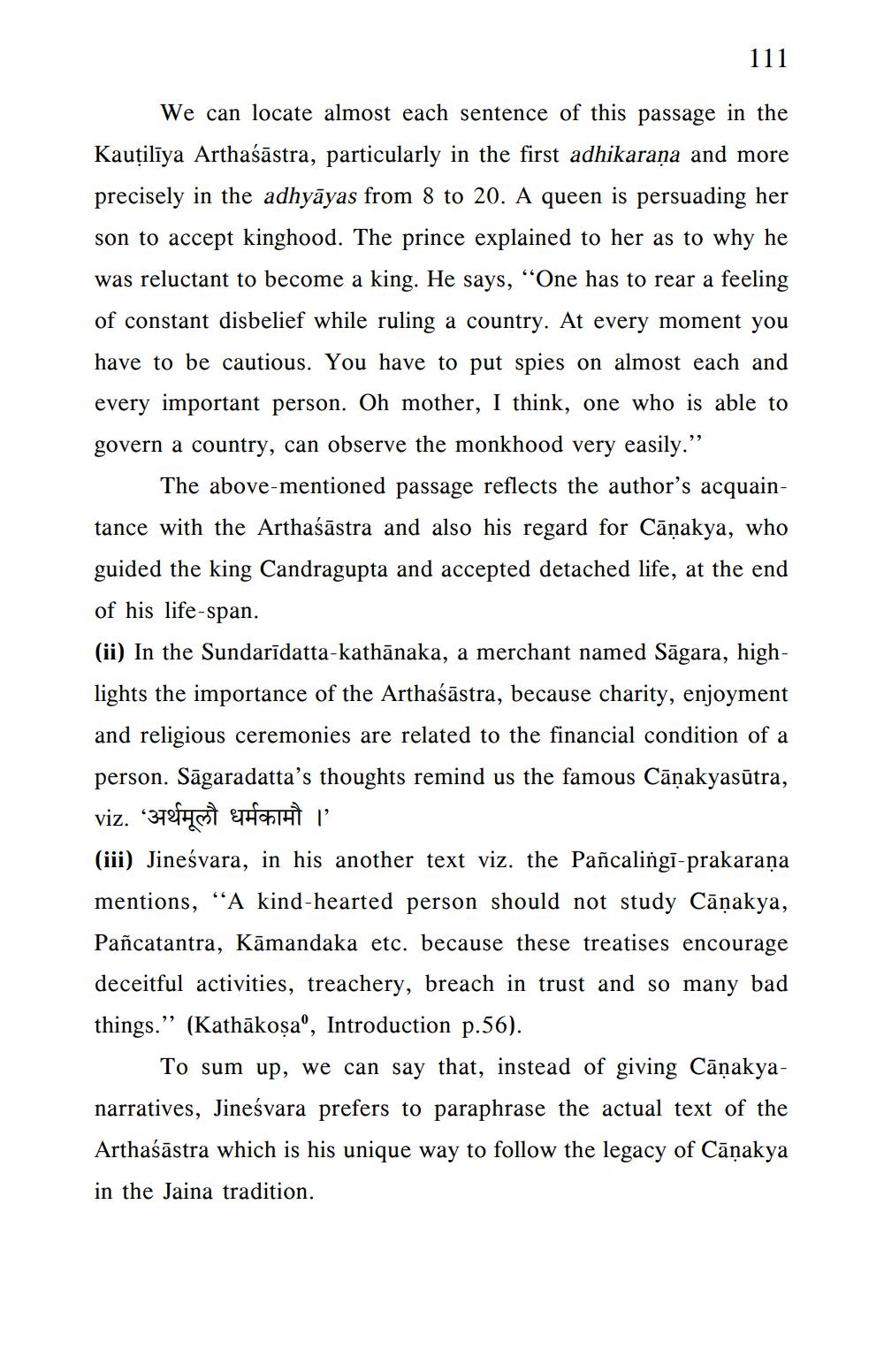________________
111
We can locate almost each sentence of this passage in the Kauṭiliya Arthaśāstra, particularly in the first adhikaraṇa and more precisely in the adhyāyas from 8 to 20. A queen is persuading her son to accept kinghood. The prince explained to her as to why he was reluctant to become a king. He says, "One has to rear a feeling of constant disbelief while ruling a country. At every moment you have to be cautious. You have to put spies on almost each and every important person. Oh mother, I think, one who is able to govern a country, can observe the monkhood very easily."
The above-mentioned passage reflects the author's acquaintance with the Arthaśāstra and also his regard for Cāṇakya, who guided the king Candragupta and accepted detached life, at the end of his life-span.
(ii) In the Sundarīdatta-kathānaka, a merchant named Sagara, highlights the importance of the Arthaśāstra, because charity, enjoyment and religious ceremonies are related to the financial condition of a person. Sāgaradatta's thoughts remind us the famous Cāṇakyasūtra, viz. ‘अर्थमूलौ धर्मकामौ ।'
(iii) Jineśvara, in his another text viz. the Pañcalingi-prakaraṇa mentions, “A kind-hearted person should not study Cāṇakya, Pañcatantra, Kamandaka etc. because these treatises encourage deceitful activities, treachery, breach in trust and so many bad things." (Kathākoṣa", Introduction p.56).
To sum up, we can say that, instead of giving Caṇakyanarratives, Jineśvara prefers to paraphrase the actual text of the Arthaśāstra which is his unique way to follow the legacy of Cāṇakya in the Jaina tradition.




